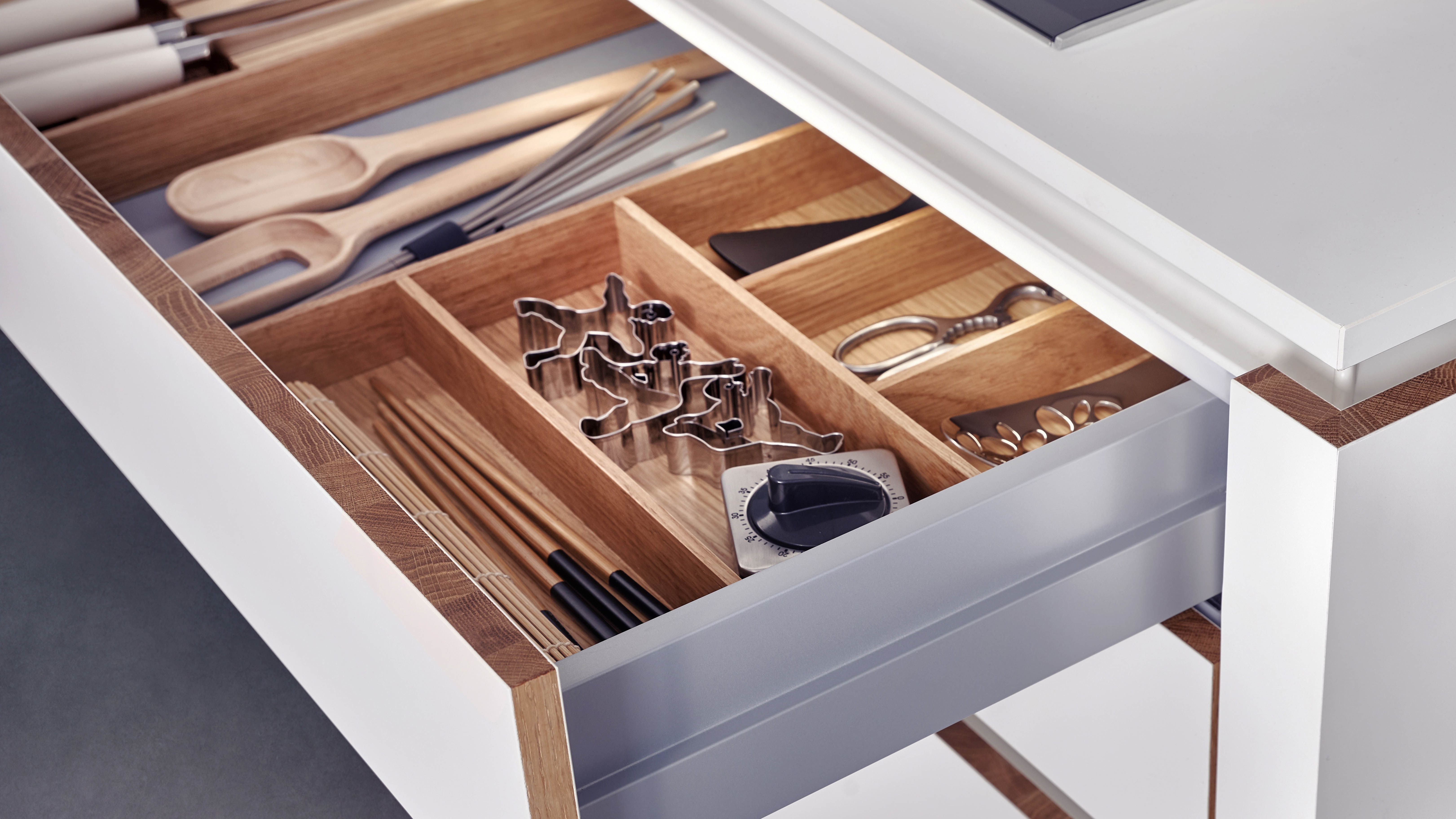
The kitchen is the main hub of the home, which is why it’s important to keep it clean and clutter-free. And once you’ve mastered how to organize kitchen cabinets the right way, don’t forget about the kitchen drawers.
Our kitchen drawers are another go-to place for storing utensils, and keeping things hidden. Trouble is, these often get filled to the brim with ad-hoc items that simply don’t belong there. From packing tape or receipts, to those spare cabinet door handles you want to hide away, these can quickly take over valuable space.
Before items start to accumulate, you’ll need to be mindful of certain things that shouldn’t be kept there. Not only do these pose a safety hazard, but such clutter makes it difficult to find what you’re looking for.
So, before you throw anything into your drawers, avoid these things you should never store in a kitchen drawer — but probably do.
1. Sharp cooking knives
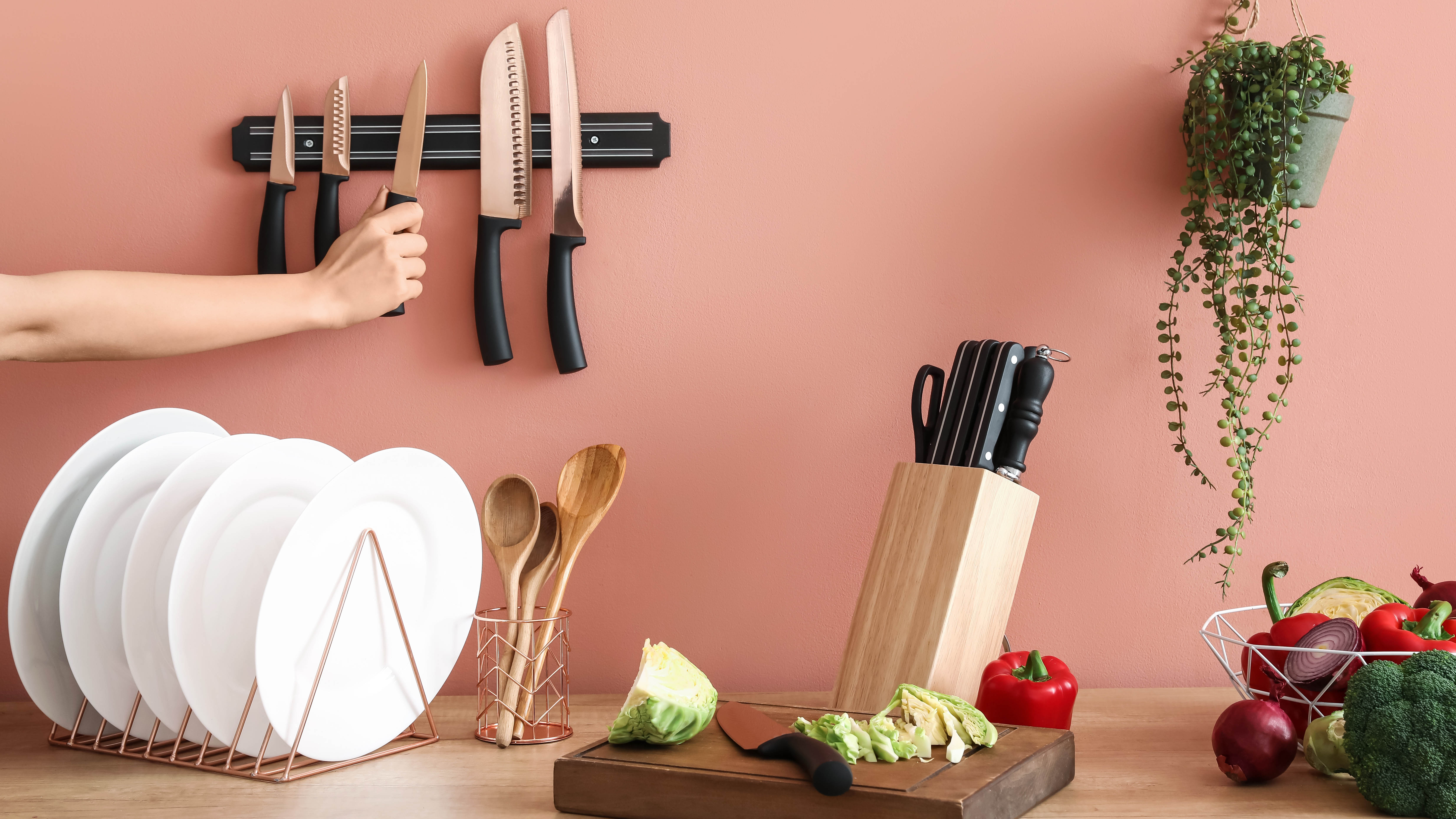
Although knives are an essential part of cooking, these should never be stored in a kitchen drawer with our other utensils. This is mainly because loose, sharp knives pose a danger when mixed with other daily tools. What’s more, this could cause a potential accident when searching for something in a hurry.
It’s always best to keep sharp knives out of the utensils drawer, and store them in a separate drawer or suitable place, such as a knife block. These countertop blocks are usually designed from high-quality wood, with up to 25 knife slots. Or you can opt for the tempered glass blocks if you want to see your collection. Glass blocks like this Mercer Culinary M20000 Genesis 6-Piece Forged Knife Block Set ($134, Amazon), will make a sleek, modern addition to any kitchen.
Alternatively, check out these clever ways to store kitchen knives, that are safe to use, and more organized for your meal prep tasks.
2. Medication/supplements

While it might seem a convenient place, medications or supplements should never be stored in a kitchen drawer. In fact, the kitchen is not the ideal place to store medications altogether, due to the fluctuating temperatures and humidity that can ruin its effectiveness. What’s more, you want to ensure all medications are out of reach from young children who could easily access them.
Instead, store medications in a cool, dry place such as a dedicated medicine cabinet, or inside a storage bag like this Medicine Storage Bag, ($29, Amazon). Not only will these all be kept in a safe place, but they'll be easier to organize neatly.
3. Loose batteries
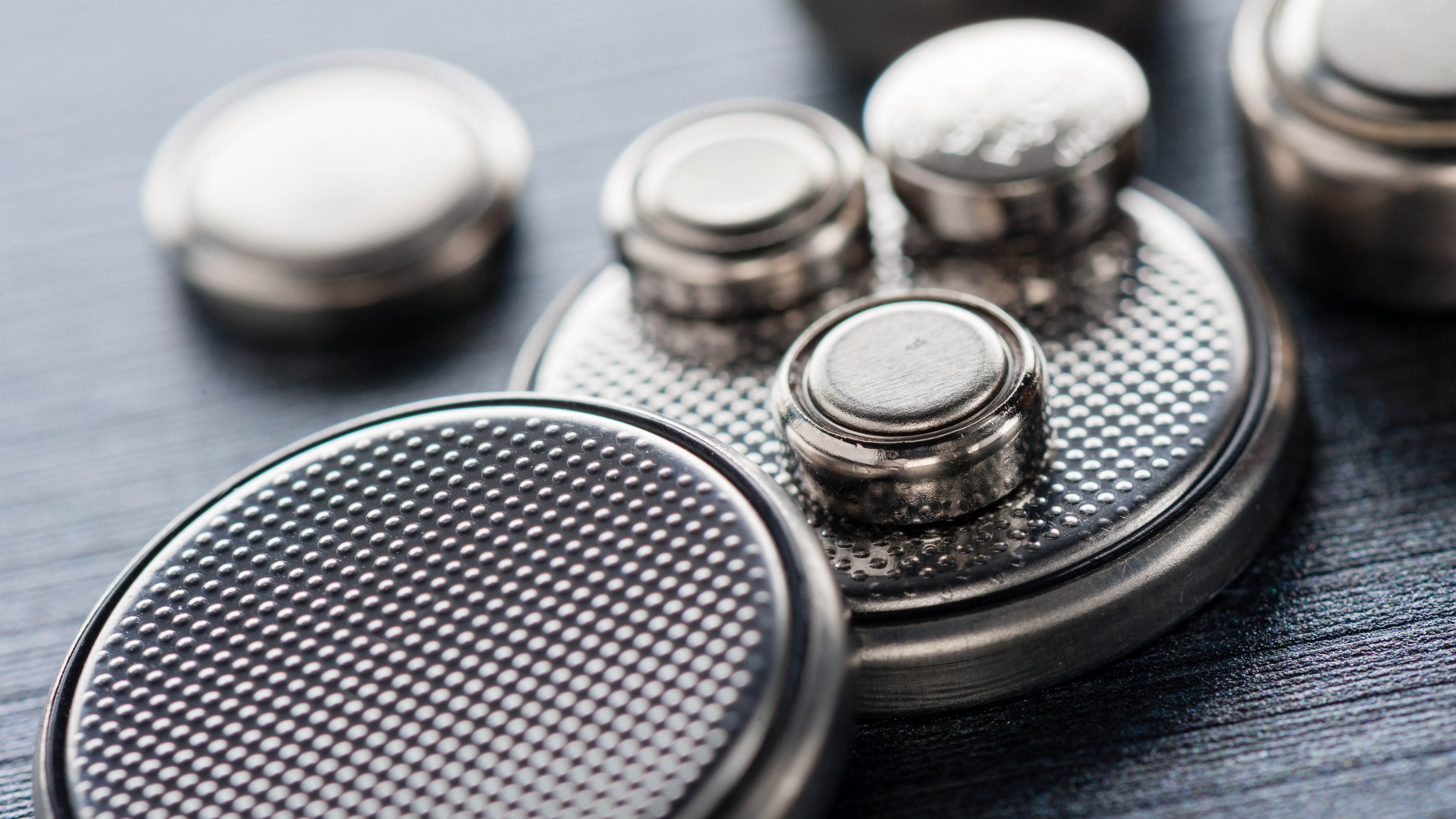
If you have battery-operated, kitchen gadgets, you might be tempted to keep spare ones in the kitchen drawer. However, loose batteries can leak over time, which might cause damage to other items in the drawer. What’s more, if batteries get wet or in a humid environment, this can cause corrosion and potential damage.
More importantly, always keep batteries away from young children, as small batteries are a choking hazard, especially coin cells.
If you can’t keep them in their original packaging, you can invest in a battery organizer case like this, Ontel Battery Daddy Smart — Battery Organizer Storage Case with Tester ($14, Amazon).
4. Heavy cookware
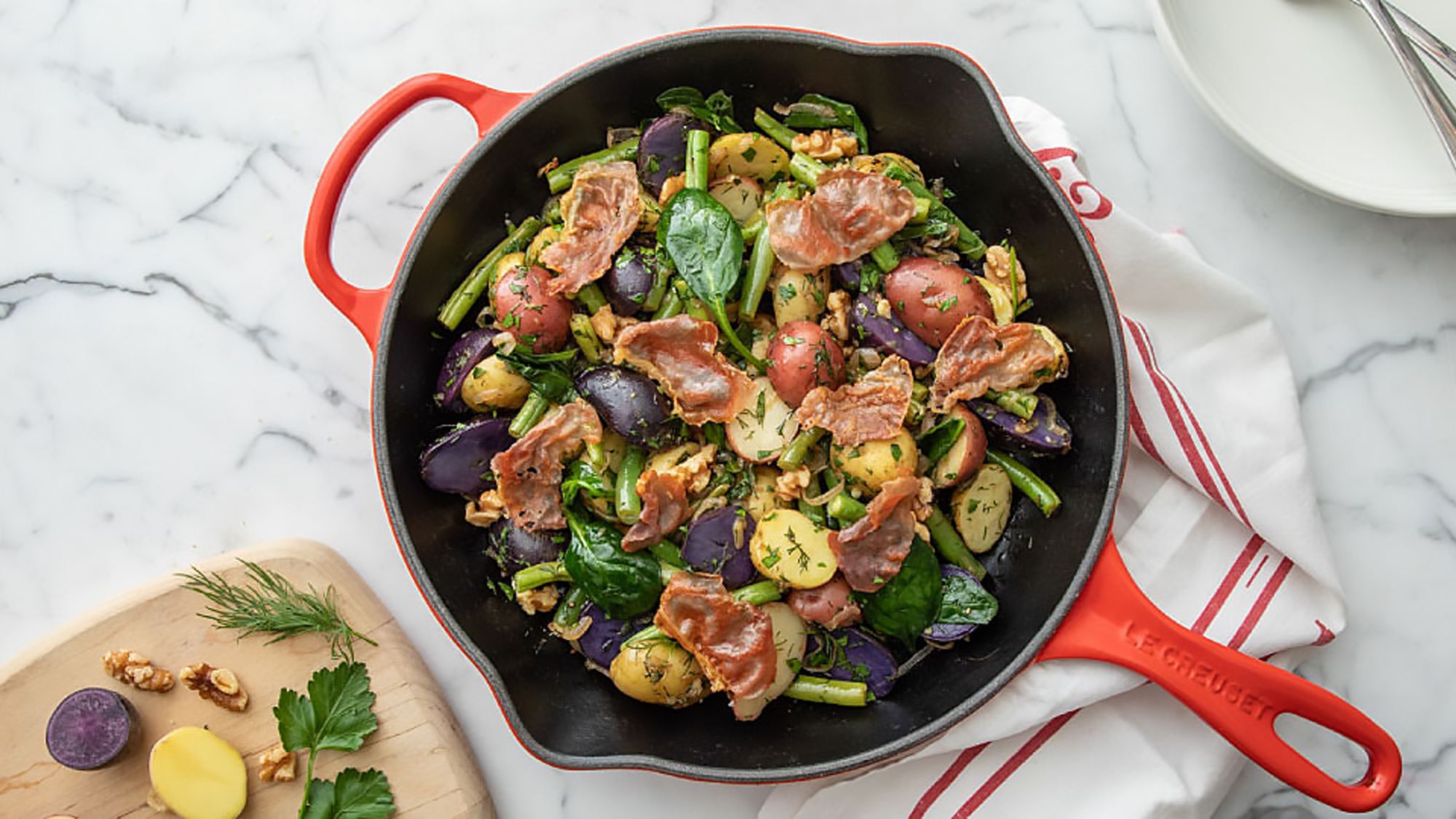
If you have excess, heavy cookware such as your cast iron skillet collection, avoid storing these in a kitchen drawer.
Generally, kitchen drawers are not designed to withstand the weight of heavy cookware, and could add strain on the mechanism, causing long-term damage over time.
Items such as heavy pots, Dutch ovens, pans, larger glassware bowls or even heavy-duty, wooden cutting boards should be stored in a suitable cabinet (preferably, lower down), that can accommodate their weight.
5. Candles
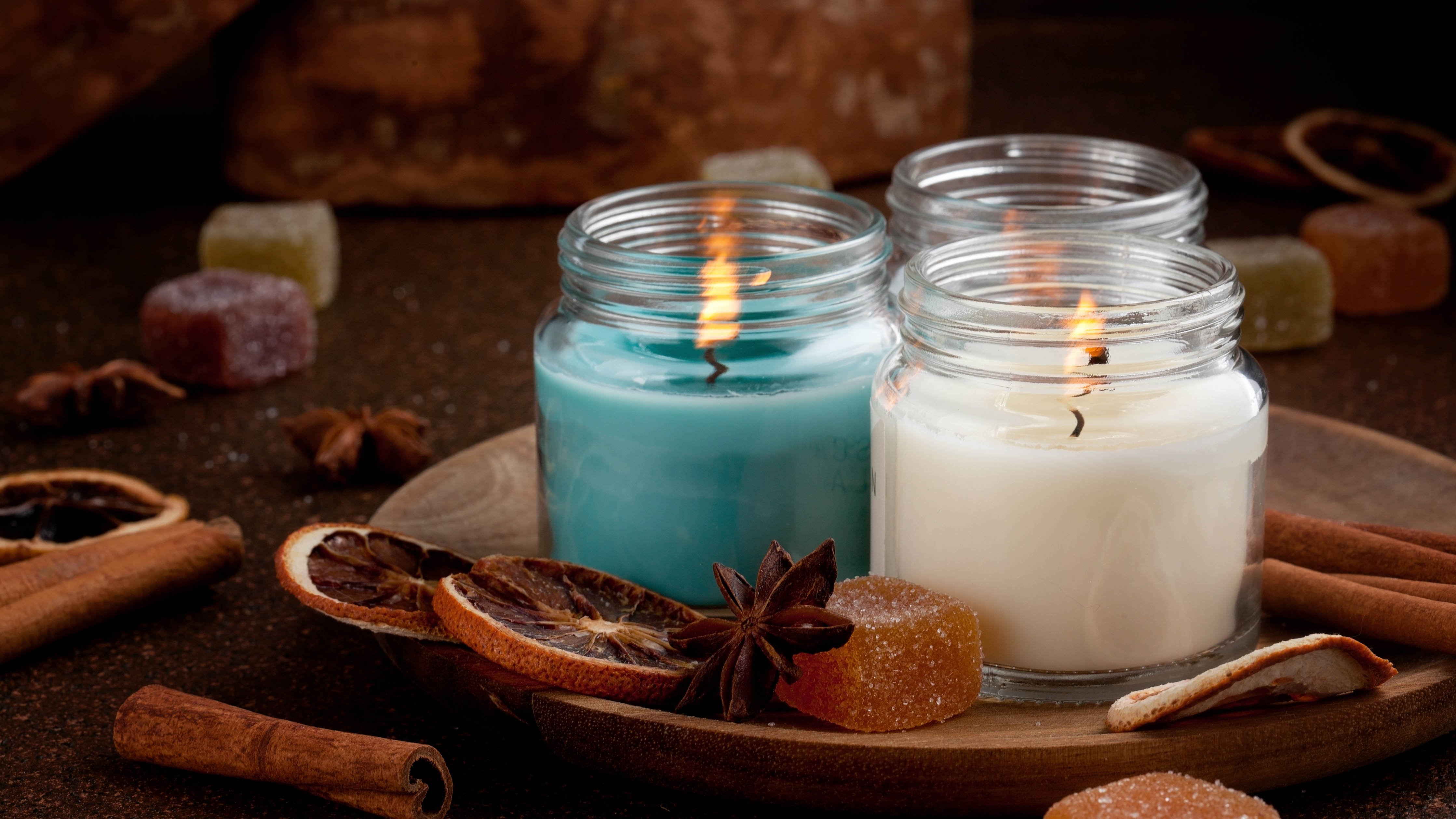
Be it tealights or fragrant waxes, candles should not be kept in a kitchen drawer. Kitchens tend to have fluctuating temperatures that might cause them to soften and compromise the fragrance.
Ideally, candles should be kept in a cool, dry place, with a temperature below 80°F, to preserve them.
For more top tips, you might also want to know how to remove candle wax from wood —tips and tricks.







